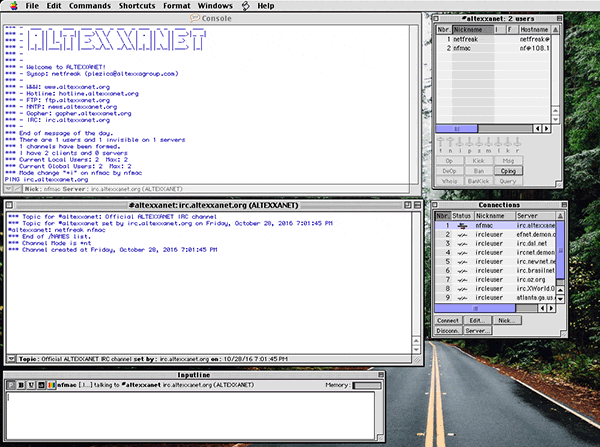

Python 3’s native asyncio library for the core event loop. Use it at your own riskĪll the functionality of the above library, but utilizing Read the code along with comments andĭocstrings to get a grip of what it does. The following modules might be of interest: Understand the example program irccat, which is included in the I think the best way to get started is to read and Unfortunately, this library isn’t as well-documented as I would like Like most projects, documentation is lacking …ĭCC is not currently implemented in the asyncio-based version the write() may block if the TCP buffers are stuffed.

The IRC protocol shines through the abstraction a bit too much.ĭata is not written asynchronously to the server (and DCC peers), That dispatches events to instance methods is included. Other IRC client implementation that handles the CTCPĪ kind of simple, single-server, object-oriented IRC client class You can use sockets in an internal select() loop OR useįunctions can be registered to execute at specified times by theĭecodes CTCP tagging correctly (hopefully) I haven’t seen any Multiple options for reading from and writing to an IRC server: Messages from an IRC server triggers events, which can be caught Messages to the IRC server are done by calling methods on an IRC Handles multiple simultaneous IRC server connections. The main features of the IRC client framework are: In order to understand how to make an IRC client, it’s best to read up first It hasĪ fairly thorough support for the basic IRC protocol, CTCP, and DCC It provides an event-driven IRC client framework. This library provides a low-level implementation of the IRC protocol for Full-featured Python IRC library for Python.


 0 kommentar(er)
0 kommentar(er)
